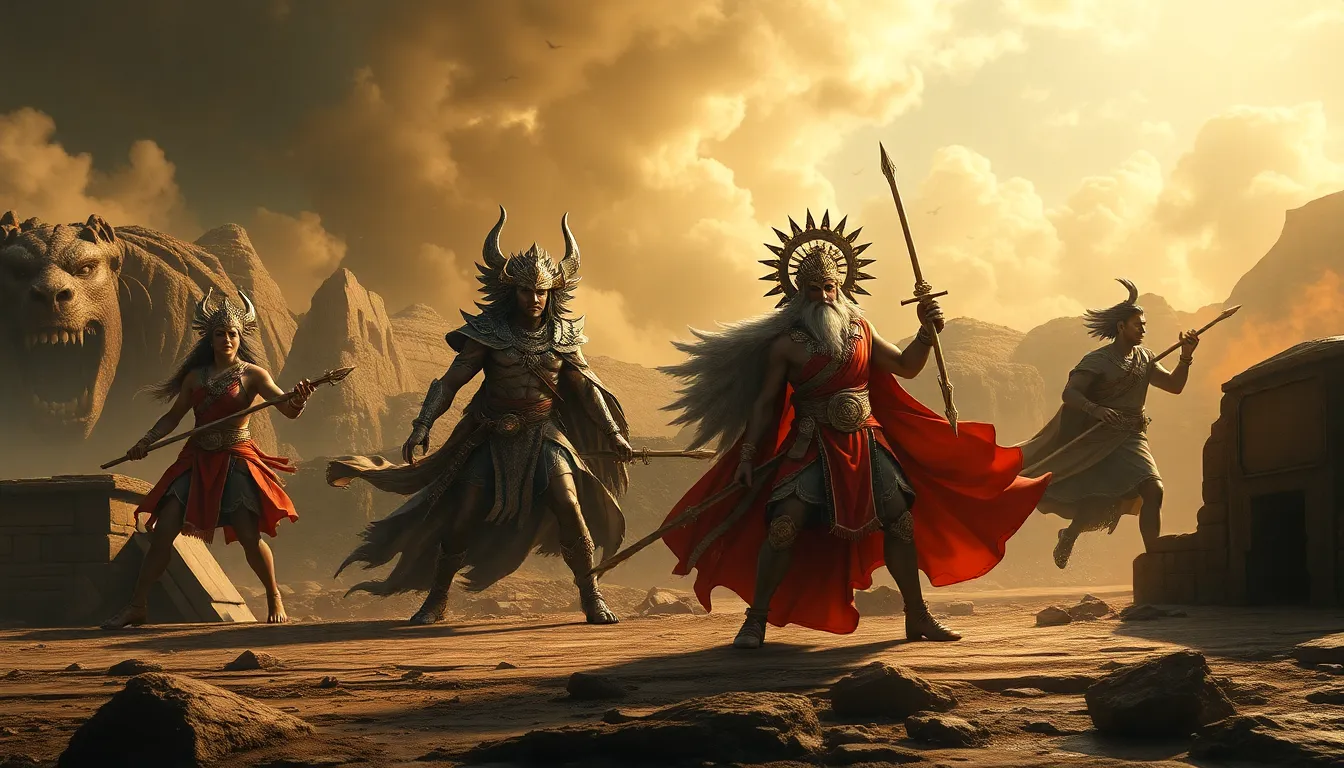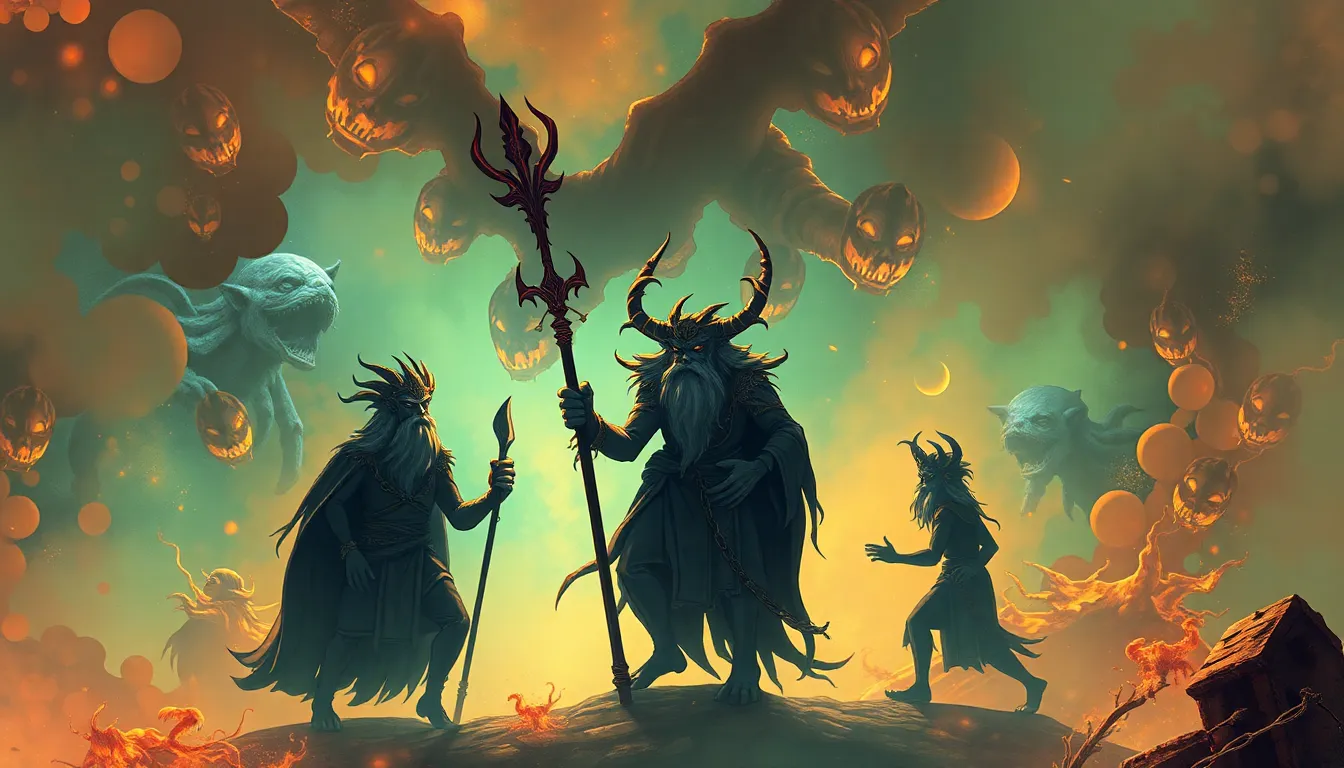The Enduring Legacy of Cultural Heroes in Mythology
I. Introduction
Cultural heroes in mythology represent figures who embody the values, beliefs, and aspirations of a society. These heroes often undergo transformative journeys, facing challenges that test their strength, wisdom, and integrity. By exploring the stories of these heroes, cultures articulate their ideals, struggles, and aspirations.
The importance of mythological heroes extends beyond mere storytelling; they function as role models, embodying the virtues that societies cherish. This article will explore the role of cultural heroes in mythology, their historical evolution, prominent examples, and their influence on modern culture, while also considering the psychological impacts of these figures.
II. The Role of Cultural Heroes in Mythology
Cultural heroes are defined by certain characteristics that set them apart. They often display extraordinary abilities or qualities, such as strength, intelligence, bravery, or moral fortitude. These attributes enable them to confront and overcome significant challenges.
The psychological and sociological functions of heroes in society are profound. Heroes can:
- Inspire individuals to strive for greatness.
- Provide models for behavior and ethics.
- Create a sense of unity within a culture.
Moreover, heroes embody cultural values and ideals. They reflect what is considered virtuous or admirable, serving as a mirror to societal aspirations.
III. Historical Context: The Evolution of Mythological Heroes
The portrayal of mythological heroes has evolved significantly over time. Major myths reflect the cultural significance of heroes in their respective societies. For example:
- In ancient Greece, heroes like Achilles and Odysseus personified the values of honor and bravery.
- In Mesopotamia, the Epic of Gilgamesh highlights themes of friendship and the quest for immortality.
- In British legend, King Arthur exemplifies chivalry and leadership.
Over time, hero archetypes have changed, influenced by historical events, cultural shifts, and societal needs. For instance, the transition from mythological heroes to more relatable, flawed protagonists in modern narratives reflects changing ideals about heroism.
IV. Case Studies of Prominent Mythological Heroes
A. Hercules: Strength and Redemption in Greek Mythology
Hercules, known for his immense strength and heroic feats, represents the struggle for redemption. His Twelve Labors symbolize the challenges one must face to achieve personal growth and atonement.
B. Gilgamesh: The Quest for Immortality in Mesopotamian Myth
The Epic of Gilgamesh tells the story of a king who embarks on a quest for immortality, reflecting humanity’s desire to transcend mortality. His journey emphasizes the importance of friendship and the acceptance of human limitations.
C. King Arthur: Chivalry and Leadership in British Legend
King Arthur embodies the ideals of chivalry, loyalty, and leadership. His tale is intertwined with the values of justice and honor, serving as a model for effective governance and moral integrity.
V. Comparative Analysis of Heroes Across Cultures
Despite cultural differences, many hero stories share common themes, particularly the hero’s journey. This archetype often includes:
- The call to adventure.
- The initiation and challenges faced.
- The return transformed.
Variations in hero characteristics exist across cultures, influenced by geographical and historical contexts. For instance, while Western heroes often emphasize individualism, Eastern heroes may embody collectivism and harmony with nature.
VI. The Role of Women in Mythological Heroism
Female heroes in mythology, such as Athena from Greek mythology or Kali from Hindu traditions, showcase the multifaceted roles women can play. These figures often challenge traditional gender roles, displaying strength, wisdom, and resilience.
However, female figures in mythology have often faced challenges within male-dominated narratives. The evolution of female heroism in contemporary storytelling reflects a growing recognition of women’s contributions and strengths, paving the way for more diverse representations in modern media.
VII. The Influence of Mythological Heroes on Modern Culture
Mythological heroes continue to shape contemporary literature and film. Modern adaptations of these stories often reinterpret the original narratives while retaining core themes. The resurgence of mythological themes in popular culture, seen in movies, television series, and literature, highlights their relevance.
Moreover, mythological heroes play a significant role in modern societal movements and ideologies, serving as symbols of resistance, empowerment, and hope.
VIII. The Psychological Impact of Cultural Heroes
Cultural heroes serve as role models, influencing personal identity and aspirations. Their narratives can shape moral development, encouraging individuals to adopt ethical standards and behaviors.
Psychological theories related to hero worship suggest that admiration for heroes can foster positive traits such as altruism and courage. However, it can also lead to unrealistic expectations and disillusionment if the heroes fail to meet societal ideals.
IX. The Future of Cultural Heroes in Mythology
Emerging trends in hero narratives indicate a shift towards more complex and diverse representations. The role of technology and digital media is reshaping how these stories are told and consumed, allowing for greater accessibility and participation.
Predictions for the evolution of cultural heroes in future mythologies suggest a continued blending of traditional archetypes with modern values, creating heroes who resonate with contemporary audiences.
X. Conclusion
The enduring legacy of cultural heroes in mythology reveals their essential role in shaping cultural narratives and societal values. As we continue to explore and reinterpret these figures, their influence on individual identity, morality, and cultural cohesion remains significant. The stories of these heroes will undoubtedly continue to inspire and challenge future generations.



